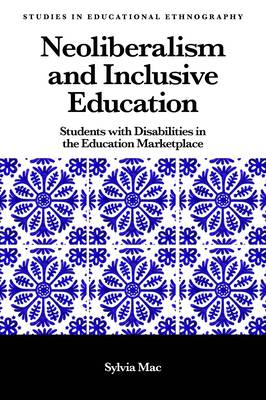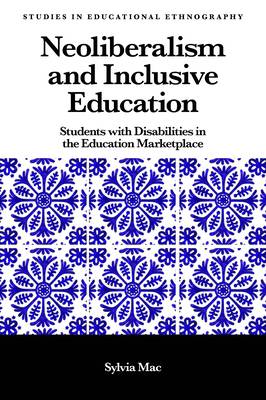
- Retrait gratuit dans votre magasin Club
- 7.000.000 titres dans notre catalogue
- Payer en toute sécurité
- Toujours un magasin près de chez vous
- Retrait gratuit dans votre magasin Club
- 7.000.0000 titres dans notre catalogue
- Payer en toute sécurité
- Toujours un magasin près de chez vous
Neoliberalism and Inclusive Education
Students with Disabilities in the Education Marketplace
Sylvia MacDescription
Charter schools continue to grow in influence, as does the push for inclusive education for students with disabilities. What is the value and impact of these schools, especially on the marginalized populations they often serve? Relying on the fields of DisCrit, and Sociology of Special and Inclusive Education, this book answers these questions by focusing on the topics of neoliberalism and inclusive education.
Mac focuses on the history of the school choice and privatization movement in the United States with special consideration given to how ideologies such as disaster capitalism and neoliberalism shaped and influenced the movement, as well as how successful (or not) these privatization efforts have been overall as a social justice endeavor for marginalized students. The author also recounts the history of education for students with disabilities, highlighting historical inequities of schooling for students with disabilities in the United States.
Drawing from an ethnographic case study of an independent, urban charter school, the school's vision and reality of day-to-day life for students with disabilities at this school are explored. The author investigates the school's inclusion program in the broader neoliberal landscape of free market competition in the educational marketplace and argues that as a result of inclusive education and neoliberal reforms being virtually incompatible, the pervasive neoliberal environment presents the biggest hurdle to successful inclusive education.
Spécifications
Parties prenantes
- Auteur(s) :
- Editeur:
Contenu
- Nombre de pages :
- 160
- Langue:
- Anglais
- Collection :
Caractéristiques
- EAN:
- 9781838671112
- Date de parution :
- 30-09-21
- Format:
- Livre relié
- Format numérique:
- Genaaid
- Dimensions :
- 154 mm x 230 mm
- Poids :
- 376 g

Les avis
Nous publions uniquement les avis qui respectent les conditions requises. Consultez nos conditions pour les avis.






